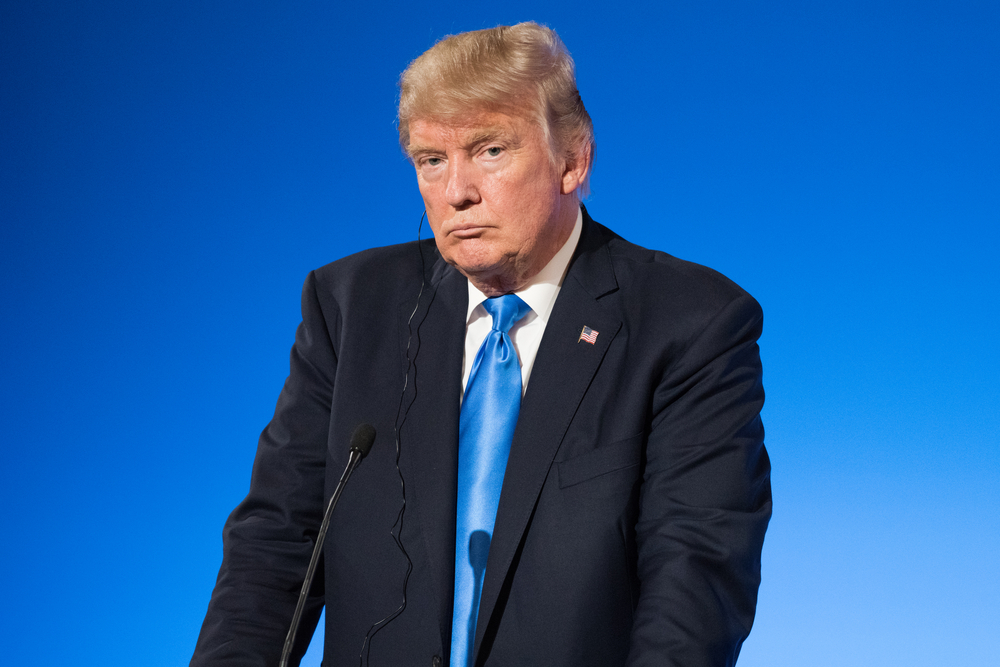Health
Donald Trump aces mental aptitude test designed by an immigrant to Canada
WASHINGTON — When the White House released the results of a test on Donald Trump’s mental aptitude Tuesday, showing he aced it without signs of cognitive decline, there was one person out there brimming with pride despite not knowing the president.
That person was Ziad Nasreddine — who designed the test.
The Lebanese-Canadian neurologist learned from a reporter Tuesday afternoon that the White House had selected the Montreal Cognitive Assessment to test the president’s faculties after days of speculation about his state.
This was the test Nasreddine developed as a young researcher two decades ago, in an effort to quickly assess, within 10 or 12 minutes, whether someone has suffered light cognitive impairment or the onset of Alzheimer’s disease, by asking them to perform tasks such as drawing a clock, identifying animals and remembering words.
He says it has now been used in 200 countries, in 60 languages, and has been deployed in one developing country to demonstrate its leader was no longer fit to govern. On Tuesday, the White House announced Trump’s score: 30 for 30.
“It’s really an honour for me,” said Nasreddine, now affiliated with McGill and Sherbrooke universities in Quebec.
“I’m really thrilled, and happy they decided to use it over other tests.”
The White House doctor announced during a briefing with reporters that he selected the Montreal cognitive test among several available. Dr. Ronny Jackson — who also worked with the previous administration, and was praised in social media by former Barack Obama staff — said he never doubted this president’s cognitive ability. He said he talks to Trump daily, and didn’t feel he even needed the test.
“The president asked me to do it,” Jackson said.
Washington had been abuzz in recent days with details from a tell-all-style book suggesting everyone in Trump’s entourage questions his mental stability. Trump had responded by referring to himself as a “stable genius,” and requested the cognitive exam.
Nasreddine cautioned that his exam doesn’t test for everything.
It’s designed to identify early cognitive decline — not other psychological issues, or personality attributes, such as judgment. He also points out that it can be tricked by someone with a very high level of education.
“The test is a screening measure. It has limitations,” he said.
“It’s a test mostly for executive functions, and memory. Meaning organization, planning, abstract thinking… (Still), if it’s 30 on 30 it’s really reassuring — in terms of the ability of the person to have minimum cognitive function to be able to do important things, in terms of language, memory, executive function. It does not absolutely assess personality issues.”
He’s proud of one other thing about this news.
Nasreddine came to Canada as a teenager with his Druze family during the civil war in his homeland, Lebanon. He was 15. He, his widowed mother, and his sisters came to visit an uncle for the summer of 1983 — and, with their country ravaged by sectarian strife, they stayed.
They applied for permanent residency; he went to school, eventually attended the University of California at Los Angeles, and moved back to Canada in the 1990s when he designed the cognitive test.
He recognizes the irony of his test having helped a president who kept out war refugees, promoted a Muslim travel ban, is working to end chain migration where relatives help other relatives immigrate and reportedly used crude terms during Oval Office meetings to describe poor countries immigrants come from.
He says he hopes the president draws some lessons from his story.
“I’m an immigrant,” said Nasreddine.
“It’s an honour for me to be able to contribute, to assessing the president of the United States. No matter who the person is, for me it’s an honour. … I think immigrants can be proud that they are contributing. And this is a good example, I think, that will be helpful to change views about immigration. And maybe for Mr. Trump himself to consider immigrants as contributors to advancing science, advancing our societies.”






















